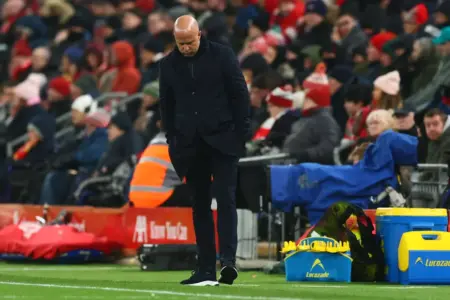Premier League Extends PSR for Another Season
The Premier League has decided to extend its Profitability and Sustainability Rules (PSR) for at least one more season, according to a report by Sky Sports. This decision comes after a meeting in London where club representatives opted for continuity, delaying the introduction of the Squad Cost Ratio (SCR) framework. The move to retain the PSR means that financial regulations will remain unchanged for the upcoming season, a decision that has sparked mixed reactions among clubs and observers.
Rumors and Reality: The Influence of Manchester City’s Legal Battles
There were whispers that Manchester City’s ongoing legal battles with the Premier League might have influenced the decision to postpone the switch to SCR. However, the Premier League has not officially confirmed whether these legal issues played a role in the deliberations. The ongoing controversies and the complexity of the legal landscape surrounding top clubs like Manchester City add another layer of complexity to the financial governance of the league.
Understanding the PSR: A Controversial Rule
The PSR system restricts clubs to a maximum loss of £105 million over a three-year period. This rule has been a point of contention, with some clubs seeking changes due to perceived inconsistencies in its enforcement. The most notable examples of this are Everton and Nottingham Forest, which faced severe points deductions last season for financial irregularities. In contrast, other clubs managed to navigate the regulations without facing any repercussions. Critics argue that this inconsistency undermines the effectiveness of the PSR and creates an uneven playing field.
The Youth Talent Dilemma: A Controversial Strategy
The decision to retain the PSR means that clubs will continue to face the challenge of balancing financial prudence with competitive ambitions. One contentious strategy that has emerged is the sale of youth talents to meet financial targets. This practice has proven controversial, with many arguing that it is counterproductive and detrimental to the long-term development of young players. While it may help clubs meet the PSR requirements, it can also lead to a brain drain and a lack of continuity in club development.
The Proposed SCR: A Double-Edged Sword
The proposed Squad Cost Ratio (SCR) was intended to cap player wages, transfer fees, and agent payments at 85% of a club’s revenue. This framework was seen as a potential game-changer for curbing excessive spending and ensuring financial sustainability. However, discussions have stalled once again, and the Premier League clubs have chosen to stick with the familiar PSR. The SCR had its share of detractors, with some clubs and stakeholders expressing concerns about its potential to stifle ambition and limit investment in talent.
Balancing Financial Prudence and Ambition
As English clubs gear up for the summer transfer window, the stakes are incredibly high. Teams must navigate the fine line between financial prudence and competitive success, a challenge that is exacerbated by the ongoing financial regulations. The decision to retain the PSR for another season means that the debate over financial governance in the Premier League will continue to be a hot topic. Those advocating for stricter financial controls see this as a missed opportunity to create a more balanced playing field, while others argue that the PSR, despite its flaws, provides necessary financial stability. The Premier League faces increasing pressure to find a long-term solution that ensures financial sustainability without stifling the ambition and growth of its clubs.











